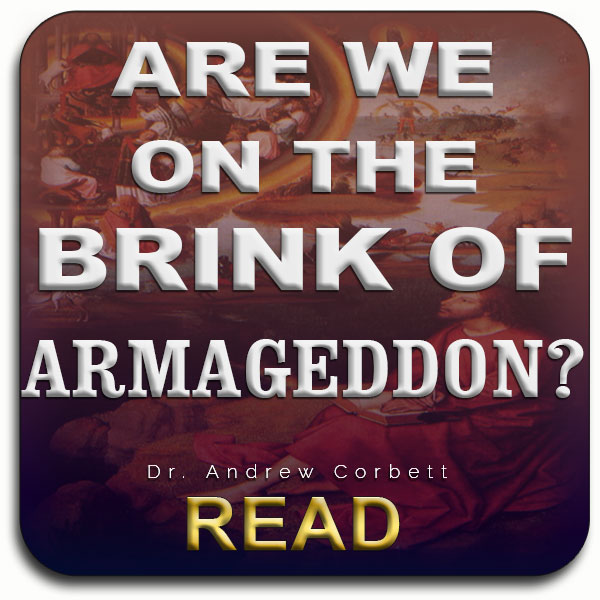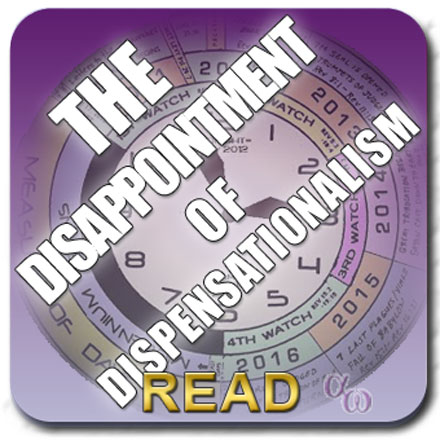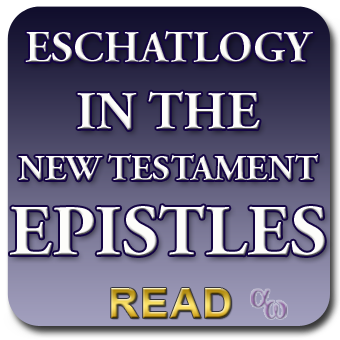
by Andrew Corbett | Oct 13, 2018 | Book of Revelation |
Armageddon? Some say it’s just about to happen. But what does the Bible say about it? Whenever things flare up in the Middle East, especially involving Israel, there are always people who speculate that Armageddon is about to happen. The word “Armageddon” has now become synonymous with “the final battle that ends the world”. So ubiquitous has the word become for the end of the world that Hollywood have titled blockbuster films with it, fictional books have been written about it, and media commentators now refer to it as the catch-all word to describe the level potential fall-out from a Middle Eastern battle.
This is all very staggering considering that it occurs only once in Scripture, in the Book of Revelation, and is not alluded to anywhere else. Added to this is…

by Andrew Corbett | Jun 25, 2018 | Hermeneutics |
Professors Gordon Fee and Douglas Stuart state that the entire framework of the New Testament is eschatological (How To Read The Bible For All Its Worth, 2003:145). “Eschatology”, they write, “has to do with the end, when God brings this age to its close.” Hence my double entendre heading – Understanding what the Bible teaches about “finally” (Eschatology) is necessary in order to understand what the New Testament teaches…

by Andrew Corbett | May 28, 2018 | Bible Prophecy |
Dispensationalism comes in various forms. A “dispensation” is a period of time. An era. In its most extreme form it regards God as having multiple plans of salvation depending on the particular dispensation. These dispensations generally commence with the Dispensation of Innocence and include other Dispensations such as the Dispensations of Works, Law, and Grace. This is contrasted by the orthodox Christian view of regarding God only ever having one means of salvation: the work of Jesus of Nazareth, especially His suffering, death and resurrection. But Dispensationalism is most notably distinguished from orthodox Christianity in the way it regards Israel. Dispensationalism says that God has a distinct plan and salvation for Israel. The roof of Dispensationalism is then supported by the walls of a novel form of end-times teaching. This includes such things as a rapture of the Church, a two-part Tribulation period, the global rule of an Anti-Christ, the reconstruction of a Temple in Jerusalem, the Battle of Armageddon, and then the Return of Christ. Dispensationalist Bible Prophecy teachers have gone to great lengths in their predictions of what the future holds based on their interpretation of the Bible. I have written a separate article on some of these predictions. But there’s a problem. A big problem!

by Andrew Corbett | Apr 5, 2018 | Eschatology |
New Testament epistles are sprinkled with eschatological references which have led to confusion and the belief that the rules of hermeneutics must be re-written to accommodate particular eschatological systems. We will now survey how these Epistles make eschatological references and how we might best understand them.
A Sense of Imminence
¶ The end of all things is at hand; therefore be self-controlled and sober-minded for the sake of your prayers.
First Peter 4:7
The eschatology found in the New Testament Epistles conveys an expectation of imminence. Each of the writers had a sense that something was about to happen very soon. It could be argued that they were misguided and that the Scriptures accurately recorded their misinformed views. We see evidence of this sort of thing throughout the Old Testament where misinformed human perspectives were accurately recorded in God’s inspired Word. This includes such statements like, “from the rising of the sun” (Psalm 50:1; Isaiah 45:6; Malachi 1:11). Of course, we know that the sun doesn’t rise but from the perspective of the human authors it appeared to. But this doesn’t seem to be the sort of thing happening in the Epistles. Unlike the genre of the Psalms or Prophets, these eschatological statements found in the Epistles are not poetic. They are presented as statements of fact – often linked to an injunction (1Peter 4:7; Hebrews 10:24-25). If it is the New Testament perspective is actually just the accurate recording of misguided human opinion, it then makes the linked injunctions (moral commands) redundant.

by Andrew Corbett | Feb 22, 2016 | Book of Revelation |
At the start of every new year there are always hopeful believers who claim that this is the year that Christ will come back. Some of these believers move beyond hope and practice unhelpful distortion of Scriptures to arrive at their wild guesses. Is there are genuine Biblical basis for believing that this will be year that the Lord will come back?

by Andrew Corbett | Feb 22, 2016 | Bible Prophecy |
“It was the best of times, it was the worst of times.” begins the Dickens’ classic, The Tale of Two Cities. For many End-Times preachers, these are the worst of times. This idea is reinforced repeatedly by many Christians who feel that the world is indeed getting worse and worse. When I have lectured on Ethics or Eschatology both here and abroad, I have been challenged by students who despair that Christians can not hope to have a godly influence on society since the Bible apparently says that the last days will be dark and full of rampant evil. I have generally responded to these claims by asking if there was another time in history in which they would rather have lived? When students think about it, they usually conclude that there is no better time to be alive than now. But this presents a dilemma for those Christians who have bought into the idea that these are the “worst of times”, because the evidence suggests that these are the best of times.
I’m a Preterist. I’m not a Futurist. This means that I consider the Bible needs to read and understood as it was intended. I consider this to be taking the Bible “literally”. This kind of literalism distinguishs between a metaphor, an allegory, poetic parallelism, narrative, and didactic prescriptions. I therefore regard Christ’s statements about His coming and the Kingdom of God being “near” and “at hand” as being intended to convey the idea that His coming and the Kingdom of God on earth was about to commence within the life-time of Christ’s original audience.

by Andrew Corbett | Apr 7, 2007 | Bible Prophecy, Eschatology |
Some Fundamentalist Christians make wild claims about certain predictions they claim the Bible makes. Here’s what the Bible doesn’t predict!








